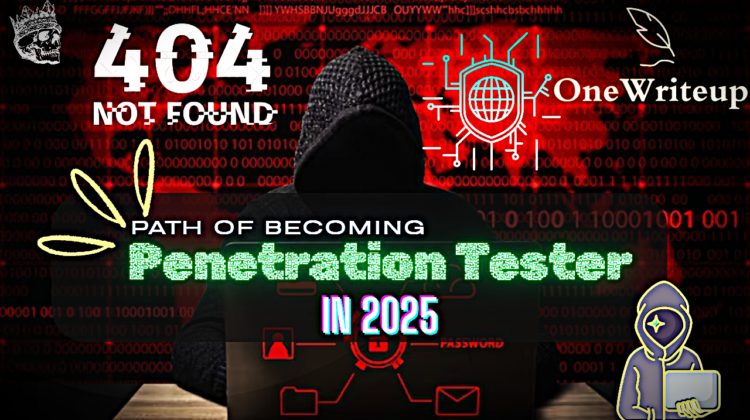Introduction :-
Entering the world of penetration testing can seem intimidating, especially if you’re coming from a non-technical background. But don’t let that hold you back. By focusing on specific skills and a targeted approach, you can fast-track your way to a career in pentesting, even without prior IT experience. Here’s how to streamline your journey and get hired as a penetration tester in under 12 months.

Commitment towards Path
The most crucial part of breaking into penetration testing is committing to the journey. This path will require determination and persistence; the learning curve can be steep, and setbacks are part of the process. Find ways to stay motivated, but remember: nothing replaces the drive you bring to the table. Dedicate yourself to this goal, and you’ll be much closer to reaching it.
Understand Penetration Testing
To succeed in penetration testing, you need a clear understanding of what the job entails. Think of penetration testing as a structured way to identify vulnerabilities within a system, simulating an attacker’s perspective. You’re not paid to “hack”; instead, you’re hired to find weaknesses, assess risk, and guide organizations on how to secure their systems. Tools like Hack The Box are popular training grounds for pentesters, where challenges mirror real-life scenarios and allow you to practice these skills.

Pick a Specialization Early On
An effective way to break into the field faster is to start with a specialization. Many beginners avoid focusing on specific areas, but choosing one in demand—like cloud security or OT/IoT testing—can give you an edge in job searches. Some popular areas to consider include:
- Web Application Security: A foundational area that’s often in high demand.
- Cloud Security: With rapid cloud adoption, roles in securing AWS, Azure, and GCP are rising.
- OT/IoT Security: A newer but quickly growing niche with limited experts.
Check job listings to see what employers are looking for in your region, and let demand guide your choice.

Get Hands-On Experience Early
Nothing beats real-world experience when it comes to penetration testing. If you’re new, platforms like Hack The Box, TryHackMe, and VulnHub offer excellent environments to practice. Also, don’t overlook bug bounties; participating in programs like HackerOne or Bugcrowd gives you experience finding live vulnerabilities, and it’s valued highly by employers. Bug bounties also showcase your initiative and hands-on skills, often holding more weight than certifications alone.
Be Selective with Certifications
Certifications can be valuable, but they’re not mandatory to start. Instead, prioritize affordable, relevant certifications that align with your chosen specialization. For instance, if you’re focused on web application security, the “Burp Suite Certified Practitioner” is a solid choice. Avoid costly certifications until you’re already employed, as many employers offer to cover these expenses. Focus on practical skills first, certifications later.

Sharpen Your Soft Skills
Technical know-how is crucial, but soft skills are often what make or break penetration testers in the field. Remember, your job includes clearly communicating findings to clients, who may lack technical backgrounds. Essential soft skills include:
- Presentation Skills: Be able to discuss findings with both technical and non-technical audiences.
- Writing Skills: Clear, detailed, and actionable reports are critical since they may be the client’s primary takeaway from your work.
- Preparation for Meetings: Arrive ready for client questions; preparation shows professionalism and a commitment to thoroughness.
These abilities will not only help in securing your first job but also position you for long-term success.

Prepare Thoroughly for Interviews
When you reach the interview stage, remember that it’s not just about your technical knowledge. Many companies look for candidates who can explain their methodologies, talk through past experiences, or solve problems under pressure. Common interview formats might include:
- Methodology Walkthroughs: Be ready to explain your approach to a sample pentest.
- Tool-Based Questions: Know the functions of popular tools like Nmap and Burp Suite.
- Scenario-Based Questions: Be prepared to discuss how you’d handle specific security scenarios.
Treat initial interviews as practice, and build confidence with each one.
Apply Broadly and Build Experience
When you’re ready to start applying, cast a wide net. Entry-level pentesting roles are competitive, and positions like junior pentester, vulnerability analyst, or security analyst can offer valuable hands-on experience. Don’t limit yourself to big-name companies; smaller firms or startups can provide diverse exposure and quicker growth. Focus on companies where you’ll be challenged and have the chance to learn from experienced team members.

Conclusion:
By dedicating yourself to learning key skills, honing both technical and soft skills, and taking on real-world challenges, you can build a solid foundation in penetration testing. With a structured approach, persistence, and a focus on relevant experience, you’ll be well on your way to landing a penetration testing role. And remember, getting your first job is just the beginning—penetration testing is a dynamic, evolving field where continuous learning is key. Stay adaptable, curious, and committed, and you’ll thrive in this career path.
TryHackMe Path to Zero to Hero:
https://github.com/tharushkadinujaya05/TryHackMe-Learning-Path-From-Beginner-to-Expert
Thank you for reading🙂! If you’re interested in more Free Resources and tools, check out this article on Top 20 cybersecurity Open-Source Tools for more insights.








